-
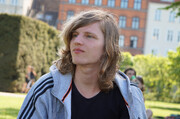
Frank Wildenburg (Netherlands)
Msc Student 2020-2023
The moment that most exemplifies the Master of Logic for me wasn't actually at the UvA, or even in the Netherlands. For an individual project I was visiting a summer school on philosophy of mathematics in Germany, where me and some other students were talking about the programmes we were following. I had only just mentioned that I was studying logic, when my fellow students immediately asked me "oh, are you doing the Master of Logic?".
This anecdote represents to me not only the (rightfully earned) exceptional reputation of the Master of Logic even outside of the UvA, but also the possibility for MoL-students to determine their own study trajectory with individual research projects on near limitless topics, and the way the MoL encourages students to engage with topics outside of their own expertise (which, in my case, was AI - it was only during the MoL that I was introduced to philosophy of mathematics as a scientific topic).
It is these things combined that make the Master of Logic into a truly unique experience: it probably would've been possible to find another master's degree that has any of these aspects on their own, but the MoL combines them into a master's degree that allows you to go in-depth on any topic you choose while encouraging you to choose topics you wouldn't have considered before. If I had wanted to study only AI or only philosophy of mathematics I might've been able to find another master's degree just as good, but the Master of Logic allowed me to develop not just as a scientist in a single discipline, but also as a more well-rounded person.
-
Siyuan Cao (China)
Msc Student 2021-2023
I would not consider myself even related to logic before entering the Master of Logic program. While my undergraduate courses predominantly revolved around literature and linguistics, I came into the MoL to study the logical form of language. As the name suggests, the MoL is all about logic. Despite offering four distinct tracks — computation, language, mathematics, and philosophy — the courses within each track remain interconnected, bound by the common thread of logic.
For those determined to pursue logic in their academic careers, the MoL is undoubtedly the perfect master program. Even for those still hesitating to continue in academia after their master degree, or not decided about their further research interest — the MoL remains an inviting space for everyone to explore, and consistently challenge themselves, though the courses might turn out to be tougher than anticipated.
Reflecting on a personal level, the two years spent in the MoL were truly memorable. Despite the intensity of coursework, the program fostered a welcoming atmosphere that felt like a second home. The generosity of ILLC researchers and my fellow MoL students in giving help made the MoL not just a challenging academic experience but also a nurturing environment for personal growth.
-
Heidi Metzler (Germany)
MSc Student 2016-2018
Unlike many of my fellow students, I completed my university degree and then worked for several years before joining the MoL. Seeking intellectual challenge that I had been unable to find in a career, I hoped that pursuing logic, the love of my undergraduate life, would lead in an intriguing direction. Late nights, hard problems, and pizza bring students close together and the intensity of the program serves as a crucible in which friendships are forged. The best part about the program is unquestionably the people: the determined students with whom you battle homework problems, the seasoned PhD candidates who dispense advice along the way, and the resolute supervisors that steer you in the right direction as you pursue your wild and unpredictable research interests. I came into the MoL hoping to study language and linguistics and instead wrote a thesis on textile patterns and algorithmic complexity. Even if you are not sold on academia or getting a PhD, opportunities abound for trained logicians in a wide variety of disciplines. I was hoping the MoL would lead interesting places and it has.
-
Mina Young Pedersen (Norway)
MSc Student 2017-2019
I found the Master of Logic after Google searching the words 'master degree' and 'logic' while I did an undergraduate course on logic offered in the philosophy department. With a cold and lonely background in mathematics and philosophy it was amazing and surreal to come to a place where these combined interests were the norm rather than the exception.
The MoL is a generous place which lets you try with varying degrees of failure and success before you decide, or confirm, what you like. Expect to be met with the assumption that you will aim to do your best. As a master student at the ILLC, you have a great opportunity to learn what academia is like. For those who wish, you get to practice collaboration, write scientific papers and present your work. Being part of the institute, you can attend seminars, workshops and conferences. MoL students even have their very own Cool Logic seminar with drinks and snacks.
I quickly realized my fellow MoL students were a group of weirdos I would grow very fond of and find my place amongst. In the diverse crowd of students from different national and academic backgrounds I always found help when I was stuck on a problem. It often required all the different colors of whiteboard markers on one of the whiteboards hanging around in the ILLC. On the social side there is also a student mentoring program for the first semester of the master, as well as a social committee. If I could give one advice when doing the Master of Logic, it is to keep your extracurricular interests, or get new ones. In my experience a mind full of logic can benefit greatly from unwinding with different kinds of tasks. For this purpose, Amsterdam is great.
I recommend the MoL to anyone who loves structures and patterns. Never be afraid of hard work.
-
Tomislav Karačić (Croatia)
MSc Student 2017-2019
Master of Logic is so much more than a set of courses one needs to pass. It is a place where students can explore topics across multiple fields and perspectives, widening their horizons, and finding that special niche one can enjoy investigating while having all of the tools needed to engage with their peers across several exciting disciplines. As it is usually the case with MoL students, I have also jumped from topic to topic, finishing my studies in a place I would have never suspected I will find myself in. This is the beauty of MoL - students can continuously tailor their educational experience to their best fit, with very unexpected outcomes.
But, as you can see from other testimonials, MoL is not just about courses and projects. It truly is a community of people that support each other and which constitutes a vibrating market of ideas. Moreover, ILLC is filled with pizza-lovers and coffee-enthusiasts which just makes the place that much better. Having this in mind and given MoL's 3I approach (interdisciplinary, individual, international), anyone that spends some time here is guaranteed a great time, as well as great prospects for the future.
So, if you are looking for a challenge and a great research community, join MoL and you will have a great time. And I haven't even started telling you about Amsterdam.
-
Rachael Colley (United Kingdom)
MSc Student 2017-2019
I first heard about the MoL when my undergraduate Logic professor had the Master of Logic poster up in his office. As I wanted to pursue Logic after my bachelor's degree, he strongly suggested that I come to the ILLC and take the Master of Logic programme.
What sets the MoL apart from other Master's programmes is the structure of the MoL allows you to explore academic avenues, outside of your area of expertise. This freedom allowed me to swap tracks to explore computation, rather than following my bachelor's degree in Mathematics and Philosophy. Being able to swap between different disciplines allows you to see problems from different viewpoints and I think this is a valuable skill.
I found the Master of Logic intense, in that you have lots of challenging topics you are working with each semester. However, due to this intensity, I was able to make long-lasting friendships with my fellow MoL students. The diversity of the group of the students helped me grow as a person, I learned a lot about the world from my time in Amsterdam.
-
Marlou Gijzen (The Netherlands)
MSc Student 2016-2018
If you join the Master of Logic, you do not just enter a master’s programme. You actually join a small community within the UvA called the ILLC.
Many talented researchers, among whom some well-established logicians, but also numerous PhD-students, all reside in the same area as you. Everyone is very approachable: always open for a conversation about your interests or to help you out. And if you are becoming passionate about research, you can do your own research project, supervised by one of them. This is a great opportunity to experience what it’s like to do research, but also to collaborate with one of the researchers at the ILLC.
Even if you do not want to become a researcher, the programme can offer you a great deal. As a student, there are perhaps too many interesting courses to choose from (but doing extra is not advised!). The content of the courses and the lectures is of very high quality.
When you are working on something, you will probably sit in one of the study spaces at the ILLC. The best thing is actually not that you are working in the middle of all the other researchers. The other Logic-students who study in the same room as you might be the best thing of your experience in the master.
You will not easily find another place with so many people who are curious about anything related to logic. Through seminars you can introduce each other to different topics, or you just use the corridors in the ILLC to have lengthy conversations. There is no better place to have a heated argument about the deduction theorem in modal logic, than in the discussion room, which has been referred to as the “agora of the Master of Logic”. For me, it was the first time that I fitted in somewhere, and I made friends for life.
-
Mrinalini Luthra (India)
MSc Student 2016-2018
Two years spent at the master of logic have been transformative. Trained as a mathematician, MoL honed my critical abilities and allowed me to diversify my skill set by giving me access to a broad range of perspectives, both in the classroom and in the form of my cohort. The courses I followed at the MoL coupled with my interest in ethics, artificial intelligence, science and technology studies, mathematics and education culminated in a thesis on the emerging, interdisciplinary field of machine ethics. During the master, I received a grant with a couple of friends (including one from the MoL) to create a music composition and arrangement tool using machine learning methods. The MoL prepared me well for this venture - from writing a grant proposal to finding the right people to collaborate with, presenting the project, analysing its implications, brainstorming with programmers and musicians alike and doing the required research to take the project forward. The beauty of the MoL for me is that it provides one with the opportunity and resources to think about a problem from multiple dimensions.
The cohort at the MoL consists of extremely motivated individuals from across the world with a diverse range of interests and experiences. I have truly developed a lot through academic collaboration, conversations in the corridors and adventuring in Amsterdam (I strongly urge you to make time to explore this great city where one can do nearly everything except climb mountains) with these wise souls many of whom I am convinced I will know for a long time to come. Furthermore, the ILLC staff and the administration are extremely inspiring people who are very good at what they do and I would like to thank them here for their support and infinite patience. To conclude, the ILLC is an invigorating community to be part of and I would highly recommend the MoL to anyone game for a profound adventure in intellectual and personal development!
-
Morwenna Hoeks (The Netherlands)
MSc Student 2016-2018
It is only a few years ago that I learned about the existence of the Master of Logic programme, but it seems like a lifetime. I vaguely remember noticing the Master of Logic poster in the hallway at the university where I was studying back then. I found myself browsing through the ILLC website later that day, where I learned about the three I’s— International, Interdisciplinary, Individual—that were supposed to characterize the programme. A lot has happened since then, and having been submerged into a group of philosophers, mathematicians, linguists, psychologists and computer scientists for two years, I cannot deny that the institute isn’t highly interdisciplinary. Having made friends from all over the world, I would also agree that the programme is very internationally orientated. And indeed, even though collaborations and discussion with peers and professors were always encouraged, I’d say the great flexibility of the progamme makes it very easy for students to go their own, individual ways.
I speak from experience when I say the triple I’s give a pretty accurate description of life as a MoL student, but having been one for two years, I don’t think it’s quite everything there is to say. Instead, I would propose adding a fourth “I”: the last two years have for sure also been the most Intense years of my life. What’s so great about the MoL is that it doesn’t just stop when class is over. The courses I took here were all great and of such a high quality, but my most valuable experiences were outside of the traditional classroom setting. Sitting in front of a whiteboard in the middle of the night with a bunch of incredibly talented people is really a unique MoL experience that I would never have wanted to miss out on. I wouldn’t have learned so much if it wasn’t for the hours of discussion I had with my fellow MoLlers that all have different backgrounds and different perspectives on things. As it already said on the MoL-poster I saw before coming to Amsterdam: the sleepless nights have all been more than worth it.
-
Robert Passman (Germany)
MSc Student 2016-2018
PhD Candidate since 2019After having studied mathematics, in particular mathematical logic and set theory, during my Bachelor's degree, I wanted to broaden my horizons and learn about all the other things that people call 'logic' -- coming to Amsterdam and study at the ILLC was probably the best decision I could have made in that regard: not only could I learn about more and related areas of mathematical logic, but also did I study philosophical subjects that made me aware of all the different aspects of logic.
One reason for me to study the Master of Logic was also to find out whether I really wanted to be a mathematical logician: and yes, it turned out that I am still a mathematician, but now with a more foundational interest, eager to study philosophical positions in the foundations of mathematics as an inspiration for my mathematical work. I realised at the ILLC that philosophy and mathematics can inspire each other quite a lot.
The most inspiring part about the Master of Logic are though your fellow students: In many regards, I have learnt at least as much from them as I have learnt from the courses.
-
Dean McHugh (Ireland)
MSc Student 2016-2018
PhD Candidate since 2018When I started college studying English literature and philosophy, I had no idea I would end up doing logic. But I am delighted things turned out that way. I did not have a great deal of logic training during my undergraduate, but with some fantastic introductory courses, a wonderfully cooperative atmosphere – and a plenty of hard work – I found out how to approach old questions with newfound clarity and precision. For me, that was probably the most satisfying aspect of the Master of Logic: the feeling of using the most productive methods around to address today’s questions, free from disciplinary boarders in a world-class, encouraging research community.
Master of Logic students get to know the ILLC staff extremely well; through, for instance, the mentor system, coordinating individual research projects (up to 20% of the curriculum), and chatting over drinks after seminar talks. The ILLC administration are always extremely accommodating, being quick and eager to offer their support.
Many people enter the Master of Logic saying they are one thing (mathematician, linguist, cognitive scientist, philosopher, computer scientist; the list goes on…) and end up writing their master thesis on something completely different. That is typical of the ILLC’s attitude to research. And then most graduates of the Master of Logic go on to research in departments of all names all around the world. If you are looking to expand your list of friends on other continents, joining the ILLC is a good way to go. And to get a sense of just how close we are as a community, you can’t go wrong reading a few of the ‘Acknowledgments’ sections from Master of Logic theses.
In all, if you are looking to join a motivated, international and collaborative research community, I would recommend the Master of Logic time after time.
-
Max van den Broek (The Netherlands)
MSc student 2016-2018
Having lunch with fellow MoL students is in my top 5 best things in life. The MoL students are fascinating because they come from all over the world, their curiosity is never-ending and they are by far the most intelligent people I ever met. Their biggest problem is that they work all the time so you can rarely talk to them at a coffee place, restaurant or (God forbid) a party; that's why you need to catch them while they are having lunch at the ILLC.
The courses in the program are amazing, but I do want to issue a warning to prospective students: When I joined the program I thought that all courses offered by the MoL would be interesting to me. But I quickly found out that maths and linguistics courses were not interesting to me at all. This was good, because it allowed me to focus on courses in philosophy and cognitive science (which I already had experience with) and data science (which I enjoyed so much that I will now start a career in it), and even in these fields there were so many courses that I couldn't take all of them.
-
Rosella Gennari (Italy)
MSc Logic 1997-1998
PhD Candidate 1998-2002I am Rosella Gennari, one of the international PhD candidates that you can meet at the ILLC in Amsterdam. In fact, as you can guess from my name, I come from Italy; I am exactly from Pavia, a little and foggy town crossed by the river Ticino.
Before this experience in Amsterdam, I lived and studied in my little town, where I got my degree in Mathematics. After some years spent down there, I thought it'd been time to see something different from that nice but humid place. Thereby I came to Amsterdam, that is indeed bigger than Pavia; instead of a river I've gained a lot of canals and instead of fog a lot of rain.
Seriously, Amsterdam was and still is a valuable experience to me. I landed in Amsterdam in 1997 attracted by the Master of Logic programme. In September 1998 I graduated after completion of my thesis on 'Temporal Reasoning and Constraint Programming'. While I was at the end of my Master, I had the chance to get a PhD position at the ILLC, namely at the Department of Philosophy, where I am now. Well, more or less; I spend a good deal of my time in other departments inside and outside ILLC as well.
For instance, at the Centre for Mathematics and Computer Science, I've been studying a specific theoretical framework - based in iterations of functions, extending it in order to express further constraint propagation algorithms. At the Department of Computer Science, I work on a new translation from multi-modal propositional logic to first-order logic. The new translation aims at improving the performances of first order theorem provers based on unification and resolution.
However, don't be surprised that the ILLC gathers around 'Logic, Language and Computation' people from different departments located on various places in Amsterdam; that's why you'd better have a bike if you want to work or study here.
-
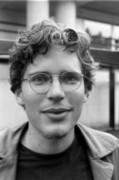
Ben Rodenhäuser (Germany)
Exchange Student 1999-2000
MSc Student 2000-2001
PhD Candidate 2012-2014When I read the brochure of the logic programme before I applied here, I was impressed by the remark of one of the students, who wrote that the logic programme was situated "in a country with maybe the highest density of logicians in the world." I imagined then how it would be to live in a city where there is always the possibility of bumping into a logician in the next instant... And although (at least outside of the ILLC buildings) it is not quite like this, the logic programme and Amsterdam exceeded all my expectations of finding an ideal environment for delving deeper into the links between logic, language and computation, while meeting interesting people from all over the world at the same time. There is great freedom which courses to choose from an impressive scale of offerings. For me as a linguist with some logical background (which is something you need here!), the optimal choice was a mixture of mathematical logic courses to strengthen my formal skills and exciting excursions into the dynamics of discourse and information exchange; but the logic programme can basically fit anyone's need. And what is maybe the most important thing: studying logic in Amsterdam is not only an intellectually demanding thing - it's fun as well!
Coming as an exchange student it was a great experience to benefit from the friendly, efficient, and helpful people at the university - both among staff and students. The International Student Network takes care of the social life of the arriving students: already in the first week of my stay in Amsterdam I had the opportunity to get to know my fellow students. I was assigned a student mentor and the university found me a room; in the second week I had an appointment with my study advisor to discuss my course schedule for the coming trimester - and the friendly and international atmosphere among the students did the rest to make me feel comfortable from the beginning.
-
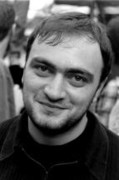
David Gabelaia (Georgia)
MSc Student 2000-2001
Almost-reciting Kant, one thing fills my mind with ever-increasing wonder and awe (besides starry heavens and moral law) the more often and the more intensely the reflection dwells on it: the amazing and beautiful way of naturally adjoining things from different fields of our knowledge into an elegant and tidy combination. A good example of this is the Institute for Logic, Language and Computation..
ILLC manages to combine completely different backgrounds and spheres of interest in an extremely useful and efficient way. Here you can find people coming from philosophy, mathematical logic, linguistics and computer science. The Master of Logic programme run by ILLC illustrates this interdisciplinarity: collecting students from every part of the earth, interested in various different subjects, together, teaching them to speak the same scientific language, improving their backgrounds and knowledge. This is a very nice tradition to have. I am proud to be part of this crowd. Coming from Georgia, famous for its hospitality, I surprisingly found out that people can be even more kind and helpful to guests here. Although the educational system is quite different from the one in Georgia, kindness, good will and proficiency of people at ILLC make my studies here very enjoyable and informationally rich. It is a great pleasure to be right at the heart of modern science, feeling its powerful beat and enormous potential capabilities. One could hardly find a better environment for decorating the curious and thursty-for-knowledge tabula rasa of young scientists in a smart, systematic and beautiful way. I do believe that in the nearest future this gently and carefully seeded garden will flourish in advantage of science and entire progress. Hopefully, the world goes towards unification and mutual understanding, and if so - ILLC with all it's members and people connected to it - is in the avant garde!
-
Marcello Vavassori (Italy)
MSc Student 2000-2001
"Anyone who's interested in Logic...". That was the beginning of the advert for the MSc Programme in Logic and it was also the spark that made my will to join the Master to grow. I knew Amsterdam for the relevant results in Modal Logic and Dynamic Semantics, but I never had expected to find such a strong gravity centre of logic researchers. The fact that has impressed me the most, and still impresses me, is the interdisciplinary nature of the programme. For the first time in my student life I can be witness to a real deep cooperation among people from different departments. From Computer Science to Linguistics, from Mathematics to Philosophy, you can find every possible interesting application of logic. It's hard to describe, but one can feel that something is happening, that the Research is flourishing around you, sometimes you can feel yourself to be about to touch it. This is, according to my experience, the most stimulating environment where a student could ever work. The thought of studying in the same building as such famous teachers gets you feeling like studying as much as you can and, furthermore, enjoying your work as much as possible. But since life is not only work, when you have finished your daily work, you can join one of the most amazing cities of the world. Amsterdam is where a foreigner stops feeling himself abroad, is where you can satisfy any kind of interest, is where you can often be nicely surprised by the multiethnic character of life style. That's why I'd like to suggest the Master Programme to anyone who's interested, not only in Logic but also in life!
-
Eva Hoogland (the Netherlands)
PhD Candidate 1997-2001
Being born and bred in Amsterdam, I am naturally proud of my city. It is a melting pot of cultures which offers a wide range of opportunities. Whether you want to go salsa-dancing or ice-skating, listen to flamenco music or to the latest techno beats, see modern art or eat Nepalese food: it's up to you. Use your imagination, try, combine, and interesting things may happen. Having studied at the ILLC over the period of the last ten years, I am naturally proud of my institute. Being located in the center of Amsterdam, the ILLC is well awear of the advantages of crossing borders. Have you ever wondered how to model the learning capacity of the human mind? Or, how to represent information transfers? Or, what is Church's thesis about? You did? Then what about studying these questions in parallel? For an inquiring and restless mind, the possibilities at the ILLC are seemingly unlimited. This also requires a word of warning. As usual, the advantages of being able to choose carry the obligation of having to choose. Freedom means responsibility. At the ILLC you are expected to have discipline and show dedication. We may inspire you, we can help you; but you will have to do a lot of work by yourself. Ask yourself whether you're able to combine the stimulating atmospheres of the city of Amsterdam and the Universiteit van Amsterdam. If the answer is yes, I am looking forward meeting you next year!
-
Catarina Dutilh-Novaes (Brazil)
MSc Student 1999-2000
When I say that I am doing a Master of Logic, people often ask me: why logic, and why Amsterdam? I still could not find an entirely satisfying answer to the first question (is there one?), but the second one is a lot easier to answer. The Netherlands, and Amsterdam in particular, has a long and remarkable tradition in logic, which has been carried out continuously until the present days. As a result, it is one of the most flourishing research communities in logic nowadays.
One might think that these activities are far outside the scope of students, but it is not the case: since the very beginning, a Master student is expected to take part in seminars, colloquia, and has access to virtually all that is taking place. To help us choose among so many different possibilities, one of the best features of the programme is the role of the supervisor: one supervisor is assigned to each student, and they really make sure that you find your way around and that you work hard! As for myself, having a Philosophy degree, it would not be easy to find a place where I could undertake Mathematical Logic studies without a Mathematics background. Fortunately, I was given this chance within the ILLC programme, to get in touch with many kinds of different logic systems, which will be extremely useful for my future studies in Philosophy of Logic.
The material structure of the programme is very good: offices, computers etc... And, last but not least, the 'personal' structure really makes a difference: everybody is concerned with making sure that everything works out fine for the students, in terms of studies but also in terms of more personal issues (housing problems, legal matters and so forth).
So all in all I am quite convinced I made the right decision, coming to Amsterdam to study logic was indeed the thing to do.
-

Shai Berger (Israel)
MSc Student 1999-2000
In Dirk Gentley's Holistic Detective Agency, sci-fi parody writer Douglas Adams introduces an investigator who believes in the inter-relatedness of all things. I think someone in Amsterdam must have been convinced by them, at least as far as the inter-relatedness of all things logical and cognitive are concerned...
Coming from Computer Science, I have always wanted to study the human mind and its reasoning mechanisms, with the hope that these could be modeled on a computer. This lead me to take interest in Cognitive Psychology, Philosophy and Linguistics, but before I came to the ILLC, I found very little interaction between these different subjects. The methods and approaches of Mathematics and Computer Science were rarely applied to the problems dealt with in other disciplines.
This has changed completely since I came here. Personally, I found, for example, that I could try to apply ideas from Proof Theory to problems in Philosophy of Mind, and my programming experience to research in Visual Reasoning. What I study in the faculty of humanities now directly inspires my mathematical work, which has never happened to me before.
But this integration of subjects is not incidental, nor is it caused by my personal interests and dispositions. It is brought about by a system of interdisciplinary events and common activities where people from different fields meet to share ideas and attitudes.
This brings me to another notion from Dirk Gentley, that of Zen Navigation: If you don't know how to get somewhere, find someone who seems to know where they're going, and follow them; you might not come to where you wanted to go, but you'll probably get to somewhere interesting. I find this a very adequate description of the early stages of an academic career. The only difference is that in physical navigation, you can only follow one person; in a place like Amsterdam, you can follow quite a few, and in radically different directions.
-
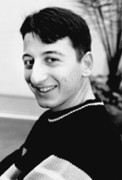
Levan Khavtasi (Georgia)
MSc Student 1999-2000
With a fellowship from Nuffic, the Netherlands Organisation for international cooperation in higher education, I came to Amsterdam to study the Master of Logic programme. I knew I was coming to a nice place, but didn't quite expect something like this. Everything at the UvA seems to deserve this epithet: professors and lecturers, students, their attitude towards students from outside of Holland, even university buildings and cafeterias....
However, the best thing about studying at ILLC is not that you have your own work and study place at one of the ILLC departments. It is not the fact that if that room happens to be at the department of philosophy you get a wonderful view over that little Amsterdam street through the window. It's not even that all professors and lecturers are so friendly and helpful at all times (that you feel like you should kiss everybody good-buy and head off to Schiphol Airport if you almost failed the last assignment) - no! The best thing, and what amazed me most, is that authors of the most acknowledged and advanced textbooks you study from are not deceased a couple of decades ago, or thousands of miles and oceans away teaching at some other university. They are right here, right now at ILLC, trying to pass all their knowledge and even their strong intuition to you of what quite easily could become your knowledge in the nearest future. You feel like you are in the very centre of the world...at least the world of logic.
I am really thankful to Nuffic which made all of this possible - thank you!
-
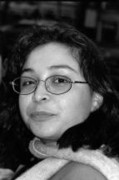
Bernadette Martinez-Hernandez (Mexico)
MSc Student 2001-2002
For a long time I searched on the Internet for a Master?s degree programme in logic and computer science. I saw many programmes, and one of the most outstanding was the ILLC programme. The courses, the lecturers, the interdisciplinary research and all the facilities gave me a very good impression. So, I decided to request more information about it. The book helped me to know everything about the programme. The remarks of the students were decisive for me. When you are studying abroad you should always look for people who have done it before, to profit from their experience.
And now, studying surrounded by canals and bikes I realized that I took the best choice. Coming from Puebla, a city bigger and hotter than Amsterdam, the first big shock was the cold and the rain. Nevertheless the people here helped me to feel comfortable since the beginning. Some nice people gave me a hand with my luggage and showed me the way to the University. This way I soon settled down.
I knew that Amsterdam was a cosmopolitan city, but I didn't how much! When I first arrived, every day provided me a new experience. The ILLC was also present, organizing the first meetings between students and staff. When the courses started the real fun began. The freedom to pick courses creates the perfect environment to know logic deeper. With a background in Computer Science and some logic, my choices were shared between mathematical logic and computational logic.
Here you can see logicians in action everywhere. Game logic, modal logic, tableaux and constraints are now part of everyday chitchat. The research spirit travels through all the hallways, and lets you know that you are in the right place for developing logic.
-
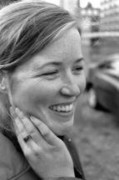
Marian Counihan (South Africa)
MSc Student 2001-2002
PhD Candidate 2002-2008I first heard about the ILLC when I attended a summer school in Johannesburg on Logic, Algebra and Computer Science. Several ILLC staff members were attending and contributing to the summer school, and what struck me then was how lively these participants were. Their enthusiasm for their subject was evident in their lectures, and they were approachable and likeable. This is a very fortuitous and unusual combination when it comes to mathematicians. So that was the first seed.
Now, almost two years later, I am here in Amsterdam, doing my masters in the Graduate Programme at the ILLC. What does it feel like to be here? So far, it has only reinforced my initial impressions of the institute: the academic life here is really a life. Interdisciplinary co-operation is continuously encouraged and developed, and there are always extra talks, guest speakers, and social events happening (sometimes too many!). More generally, underlying this is an attitude towards work (and, in particular, academic studies) which is difficult to describe exactly, but I think it has something to do with the Dutch mentality. It carries the following assumptions:
- work doesn't have to be drudgery, it can also be fun.
- don't bother doing something if you are only doing it for reasons that are not your own.
- academic work can and should be put to use - it is not a retreat from the world, but a vital part of it.It seems to stem from a general attitude of 'straightforwardness' of the Dutch people - which although it is sometimes unsettling - I am finding very refreshing. In fact, I hope I take a little bit of that away with me when I leave, along with all the interesting things I am learning in class.
-
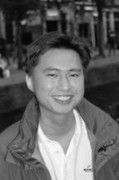
Irwin Lim (Singapore)
MSc Student 2001-2002
Coming from Singapore, Amsterdam is almost everything my home is not. I hazard that the ILLC is unique amongst the intellectual centers of the world. The atmosphere is so infused with logic that you are more than a little surprised by the diversity the subject has to offer. Since I arrived I have seen so many different aspects of logic which I have only previously read in books, directly from people who are engaged with those subjects. I cannot help but feel the urge to be involved in some way.
Although I graduated with a degree in philosophy, I also have interests in mathematical logic and computer science. One appeal of the ILLC is that there are hardly any barriers to taking courses in the different subjects, which is why I find the MSc Programme so liberating. I can let my interests take free reign and explore the possibilities such a situation promises.
In many ways, the diversity and freedom is reflected in the city of Amsterdam. Sometimes I think that it is perhaps inevitable for the ILLC to be in Amtserdam. What more can a Master's student ask for. I think anyone considering a career as a logician would not want to give the ILLC a miss.
-
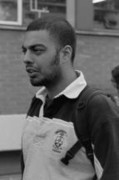
Raj Singh (Canada)
MSc Student 2001-2002
The ILLC is exactly what it purports to be, viz. an institute that pursues research of the highest quality in the areas of language, logic and computation. Truly interdisciplinary in nature, the ILLC actively encourages open dialogue between mathematicians, computer scientists, linguists and philosophers. Indeed, the spirit here is one of cooperation rather than competition, evident by the large number of joint papers and books produced by the institute. The opportunity to work with such a competent faculty has been a most enriching experience. However, on another level, the faculty members here are very approachable, both in and out of the class. It is not uncommon to go out to a local pub with your professor after class or following one of the many colloquia offered by the ILLC. Their friendliness and easy-going manner with their students is a refreshing change from the typical student-faculty relationship.
Although the opportunity for intellectual development runs rampant throughout the ILLC, the interested student should know that there is much more to Amsterdam than logic. There is a wealth of museums, cafes, parks, theatres, and of course, the world-renowned nightlife to take advantage of. An architectural marvel, the city of Amsterdam offers a unique blend of recreation, arts and culture. One should definitely consider the exciting character of the city when considering the ILLC as a potential place to study.
The common underlying thread that runs through the diverse world of the ILLC is that wonderfully eccentric subject known to the world as ?logic?: formulated by Aristotle, furthered by Frege, and in its present form, being advanced on all fronts by the Dutch logic community. The ILLC is a premier place to study for anyone interested in logic, linguistics, computation, and their interaction. The ILLC and the city of Amsterdam offer a wonderful environment for both intellectual and personal development. I highly recommend it to potential students.
-
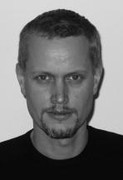
Inge Arnesen (Norway)
Logic Year Student 2003-2004
Two years ago a friend told me about this study program he had just attended as a visiting student: "If I was willing to work harder than I've ever worked before, there were great rewards to be had". The subject was logic and the place was the Graduate Program in Logic at the University of Amsterdam.
When I realised how much his understanding of logic had improved during his brief stay at GPiL, there was little doubt in my mind that this was indeed the case. At the time I saw the possibility of ever going there myself as rather slim: I was working on my masters in Norway and since I had already completed all the logic courses offered at my faculty, I had few expectations of going much further in logic. By a twist of fate, however, what seemed quite unlikely event turned into reality.
My academic background is perhaps a bit out of the ordinary. I've got a B.Sc. in Computer Science and a B.A. with majors in Philosophy and Linguistics. At the time I left for Amsterdam I was half way into my master studies in Philosophy and about to complete my master thesis in Linguistics. Coming to a program where these fields meet mathematics, a field in which I'm a novice, was quite an experience for me. Seeing how seriousness, playfulness and high standards blend into making focused and competitive research groups, it soon became clear to me that GPiL is a living proof that interdisciplinary undertakings don't have to come at the expense of quality.
Was my friend right? Yes indeed. I have never worked so hard and learned so much in such a brief period of time, but it has not been just learning: I have experienced the beauty of some of man's most impressive immaterial creations, I have spent countless hours with fellow MoL-students from all over the world, enjoying their company, admiring their talents and sharing the hardship of countless nights struggling to complete that last proof of some homework assignment. My only regret is that I've not been able to take more part in Dutch society and culture, but a year in one of the most intriguing cities in Europe has made its permanent mark: I may no longer be able to settle for less.
-
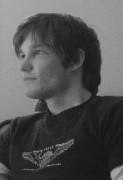
Michael Franke (Germany)
MSc Student 2003-2005
PhD Candidate 2005-2009I still don't understand what makes abstract thought so special. I only know it is special. It is pure, beautiful, compelling and absolute. I remember one of the first classes that I attended here at ILLC. The lecturer says that two modal models stand in a certain formal relation and a student raises his hand and doubts whether this is actually the case. While the student presents his intuitions, the lecturer inspects his finger nails, the tips of his shoes and even risks a look out of the window, trying not to look bored. The student finishes and the lecturer asks: "Do you know why I did not listen to what you said?" I am just as shocked as everybody else in the room. Is this warranted arrogance or impudence, I wonder. The lecturer goes on: "I know that what I said is true. So, however you argue against it, I know that what you say is false." But then he smiles, makes us understand that it was just playacting and explains in detail why the student's way of looking at the matter is indeed incorrect. I sigh in relief. The lecturer did listen, of course, and he pointed out exactly what the mistake was. What I learned that very day was not only a lesson about relations between modal models, but also something much more essential. It made me understand something about logic that I had not understood so far. And it deeply impressed me.
It is true that they make you work hard. Okay, but what would you expect? More important, they also make you see. It is not just calculations, formal language games -- what signs may you write under a certain given row of signs. There is more to it. It is about ideas, progress of human thinking and total certainty. But the real benefit of ILLC is the unconditional multiperspectivity. Due to the institute's interdisciplinary structure and, not at least, the actual co-operation and open-mindedness of researchers, any serious idea, formalism or system will be inspected from a variety of angles. As a result, the common point of view could hardly be more distanced, and yet so involved at the same time. Parallels between at first sight completely unrelated approaches pop into view and problems from previously disjoint domains suddenly share a solution. And this is what I mean when I say that they make you see. They make you see the beauty of abstract thought and eventually it has become a nearly weakly experience -- that moment of coming to see and having to admit that you have been blind before.
-
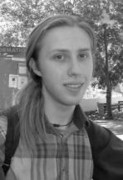
Henrik Nordmark (Mexico & Sweden)
MSc Student 2003-2006
Where do mathematics, philosophy, psychology, artificial intelligence, game theory and linguistics meet each other? Logic lies at the intersection of all these fields. And a physical embodiment of this symbiosis of different fields is the Institute for Logic, Language and Computation. As an undergraduate, I studied mostly mathematics, psychology and philosophy. Because my interests were so broad, I wanted to find a graduate program that would allow me to continue an interdisciplinary study of these subjects. The GPiL seemed to be the perfect choice for this. It is of course possible to study Logic as part of a mathematics program, a philosophy program, or a computer science program, however each of these is likely to be strongly biased in a certain direction. Here at the ILLC, all of these perspectives coexist and interact making logic a much richer and exciting field of study. As if the diversity of the subjects were not enough, the diversity of your fellow classmates adds a new twist to the GPiL experience. Everybody here is very intelligent and everybody has a slightly different academic and cultural/geographical background. I find it fascinating that one can casually slip into a philosophical conversation about AI research with philosophers, computer scientists and mathematicians coming from New Zealand, China, Mexico, and Germany without ever having to leave the ILLC. I won't lie that there have been late nights spent on how to solve a particular modal logic proof for a homework assignment, however all these efforts makes finally finding the solution all the more rewarding. If you are interested in logic and its connections to other disciplines and if you have an adventurous spirit, then you should come here and explore for yourself!
-
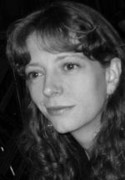
Caroline Foster (England)
MSc Student 2004-2007
I was fortunate enough to stumble across the ILLC while looking for mathematics courses in Amsterdam, as I had already moved to the city and wanted a solid excuse to stay. I had spent the years since my bachelor's degree working in the IT industry, and lucrative though it was, I felt in need of some more intellectual pursuits. I immediately fell in love with the promise of being able to combine my interests in mathematics, philosophy, natural language, logic, and even music, all within the same institute. A few meetings later and I had been adopted as a contract student and was using my vacation time to attend classes on Friday afternoons.
A year later on, I am enrolled as a full-time student on the Master of Logic programme alongside my now part-time job. I can't deny that it's tough - the logic programme is intensive enough without the need for other distractions - but the hard work is more than compensated for by the chance to meet the most amazing people from all over the world and argue about whether a thought is a real object, the use (or not) of the diaeresis in English, and why it is that maths, alone among the sciences, can never be wrong. If you thought you were the only one out there, come to the ILLC and meet your soulmates.
-
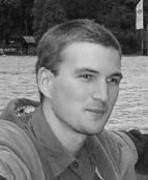
Mathias Schenner (Austria)
MSc Student 2004-2005
My first contact with researchers and students from the ILLC was at the European Summer School in Logic, Language and Information (ESSLLI) in Trento in 2002. I was impressed by the quality of the lectures and by the enthusiasm of all participants. ESSLLIs are great opportunities to meet people with different backgrounds from (at least) all over Europe, sharing a common interest in logic and information. However, there is one main disadvantage: Their limited duration of only two weeks.
At the ILLC I experienced an ESSLLI-like atmosphere. Studying here feels like attending a year-round summer school: world famous researchers are teaching highly motivated students from all over the world in one of the most exciting cities of Europe. Although the ILLC is primarily a research institute, there is also an extremely student-friendly atmosphere and most lecturers are didactically brilliant, always striving for a maximum of clarity, exactness and joy. The positive effect is that students are very soon concerned with ongoing research.
One of the best features of the ILLC is its truly interdisciplinary nature that is directly reflected in the MSc program. The combination of insights from various disciplines, such as logic, mathematics, computer science, linguistics, cognitive science, artificial intelligence and philosophy, gives rise to new explanations and new perspectives on information flow in natural and formal languages.
-
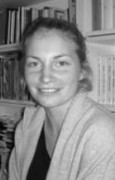
Rachel Sterken (Canada)
MSc Student 2005-2007
Studying at the ILLC has been the most challenging and rewarding experience for me - I've never worked so hard, learned so much and felt so free to investigate the bounds of my reason. The variety of courses, logicians, research activities and students makes it such a nice environment for young logicians to gain a broad understanding of the field. Whether your ultimate place and focus in logic will be oriented towards mathematics, philosophy, linguistics or computer science, I think all logicians should experience the diversity of their field. I am convinced that there is no better place in the world to do this than the ILLC - I'm so glad to have the opportunity to be here!
-
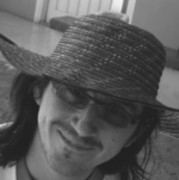
Raul Leal (Colombia)
MSc Student 2005-2007
PhD Candidate 2007-2011The 17th century is considered to be the Dutch Golden Age during which Amsterdam was the most important trans-shipment centre of Europe, and the leading financial centre of the world. Nowadays, the physical trading of goods is not as important as it was in the past, but Amsterdam remains one of the most important world centres of the knowledge trade. In particular, the city of Amsterdam, and in particular the ILLC, is one of the most important trans-shipment centres for research in logic. Before I came to the ILLC, I thought I knew what logic was. During my MSc studies, I saw that people in Amsterdam are working on branches of logic that I had never dreamed of. Nowadays, I can not define anymore what logic is.
Most branches of logic are present at the ILLC. Professors and fellow students at the ILLC will be always happy to discuss any area of logic with you, and encourage you to do research in any area you choose. Even if you are interested in some area of logic not represented at the ILLC, you will be able to find it at some other academic institution in the Netherlands in contact with the ILLC. So, if you want to do research in any area of logic, the ILLC is the place to start your research career.
-
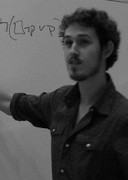
Thomas Icard III (United States of America)
MSc Student 2006-2008
Apart from the wonderful people and pleasant surroundings, what sets the ILLC apart, to my mind, is the diversity of approaches to logic and the rich variety of interactions between logic and other disciplines represented here. I think it's fair to say these days that logic is better seen, not as a single field with a definite subject matter and established method, but rather as a family of methods and approaches relating to different subject matters in different ways. I only truly came to understand this after a year of study at the ILLC.
However, such diversity notwithstanding, I think there is also something distinct about the Dutch tradition in logic, and this is nowhere more visible than at the ILLC. To be sure, Amsterdam has been one of the centers of logic since its (modern) inception, and this tradition has clearly blossomed over the course of the last century, and continues to do so today.
Quite generally, I am very grateful to have the chance to be part of such a lively, innovative, and stimulating community, and my time here shall certainly prove to be a decisive influence on whatever I do in the future.
-
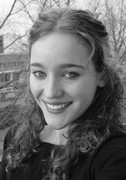
Loes Olde Loohuis (The Netherlands)
MSc Student 2006-2008
There are many different ways in which one can try to attack a problem concerning logic. Computer scientists, philosophers, cognitive scientists, (computational) linguists and mathematicians all have their specific ways. The fun thing about being a logic student at the ILLC is that you don't just learn about the various approaches, but that you are challenged to see connections between them, to build bridges and to combine insights from various perspectives.
For me one of the greatest advantages the master of Logic program is the high degree of freedom. As a student you are free to develop, explore or create whatever it is that makes your heart beat faster. In more concrete terms this means that under supervision you can develop a program that fits your personal interests.
The atmosphere at the ILLC is very informal; there is a close and personal contact between students and staff. Whenever you have some idea or maybe no ideas at all, there will be many people (including both staff and students) that are willing to offer you their advice.
Lastly, it does not always rain in Amsterdam!
-
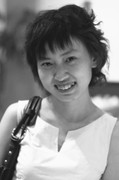
Fan Yang (China)
MSc Student 2006-2008
My most important impression of the ILLC is very typical of the Netherlands: a community that respects freedom in many ways. The ILLC is rightly proud of its interdisciplinary research atmosphere, and the MSc in Logic programme is quite interdisciplinary as well. It is always quite exciting to have conversations on whatever topics with future logicians, mathematicians, computer scientists or linguists from all over the world.
As a student from China, there are many things I had to get used to. For example, 1 pm is time for afternoon naps for most students in China. However, at the ILLC, many appointments or discussion groups start at 1 pm. It then seemed to me that people at the ILLC never get tired. I still remember one day, after a long discussion with a fellow student, she asked me: "Did you enjoy it?" Yeah, it was fun. Then, suddenly, I understood why people at the ILLC never get tired: they really enjoy it!
It was the pursuit of the joy of intelligence and pure science that was behind the Dutch achievements in logic in the past. The members of the ILLC are still pursuing the joy of logic. The blackboards of the ILLC are always full of formulas and brilliant ideas. Professors and fellow students are always eager to exchange ideas with each other.
I really recommend coming here and joining this lively community. Enjoy logic! Enjoy Amsterdam!
-
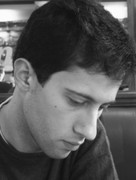
Salvador Mascarenhas (Portugal)
MSc Student 2006-2009
At the ILLC, 'interdisciplinarity' is more than just an impressive word: thanks to the unifying language and methods of logic, fruitful dialogue and exchange of ideas are possible between researchers in domains as diverse as natural language semantics and computer science.
For that reason, the MSc Logic not only gave me the opportunity to learn about my desired field of specialization from leading researchers and inspirational teachers, it also made me a capable and critical judge of work in areas unrelated to mine, with questions at the end of talks.
-
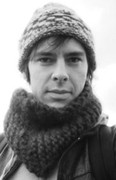
Pablo Cubides Kovacsics (Colombia)
MSc Student 2007-2009
When trying to establish the aims and structure of a Master's programme one has to choose between two different approaches. Either one offers basic and advanced courses on few subjects, encouraging the alumni to acquire highly developed skills in those areas, or one proposes an interdisciplinary programme giving introductory courses on many topics and promoting their interplay. In my view, the ILLC's Master of Logic has a perfect balance between specialized research and interdisciplinary work resolving the payoff between these two approaches. Here you will find basic courses for almost every subject related to logic nowadays. In addition, you can choose to take independent projects on advanced topics with any professor. You will always find a way to fill gaps in your background and also to continue with a line of work you were already familiar with.
-
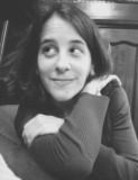
Inés Crespo (Argentina)
MSc Student 2007-2009
PhD Candidate 2010-2015My academic experience here has been unique. I've been able to take as many mathematical logic courses as I dared, but that nourished and did not displace my philosophical attitude and interests. My inquisitive stance has matured and become better articulated: the formal training in the programme is a true atmosphere, not only a curriculum. In the MSc in Logic we live in an environment of interaction that lets us most vividly reflect on people's intelligent interactions.
My human experience in Amsterdam has taken all my relations to an unexpected degree of appreciation and concern. Friends, colleagues and teachers here might have had very little in common with my past or background. But far from hindering the bonds, this fact seems to have catalyzed the connection I've made with those with which I share this journey.
And Amsterdam's (few) sunny days are beautiful, not to be missed.
-
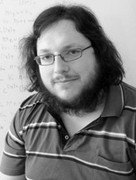
Lorenz Demey (Belgium)
MSc Student 2008-2010
Without any doubt, I can say that being a student in the Master of Logic programme at the ILLC has been the most intellectually stimulating experience of my life so far. One of the aspects I like most about logic is its interdisciplinarity: logic is at the intersection of a broad variety of other scientific disciplines, bridging the humanities (philosophy, linguistics, game theory, cognitive science...) and the exact sciences (mathematics, computer science...). At the ILLC this is translated into a vast offering of courses with varied contents and difficulty levels, so that students with any background will be able to satisfy their needs whether you choose to explore entirely new territories, or to build further on your previously acquired knowledge.
There is, however, much more to the Master of Logic than the regular courses. This programme can truly be called a research master. Initially, I attended several seminars, workshops and lectures by ILLC researchers or visitors, and then, via individual research projects and, ultimately, my master's thesis, I ended up producing my own first pieces of independent research almost without noticing it myself! Needless to say, all of this requires (a lot of) hard work and discipline. However, because of the open-minded and friendly atmosphere at the ILLC, you never grow tired of studying and researching logic.
All in all, I think that attending the Master of Logic constitutes a promising and internationally recognized beginning of a logician's career. I fully recommend it to everybody who is as interested in logic as I am!
-
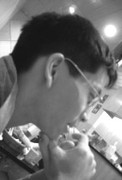
Kian Mintz-Woo (Canada)
MSc Student 2008-2010
In the ILLC, the intellectual challenge and corresponding reward is immense. What makes the experience so valuable is the opportunity to study alongside philosophers, linguists, mathematicians and computer scientists. This means that if you put the effort in, you will discover disparate vistas of logic (from neural networks to NP-completeness and from Kantian cognition to cardinal arithmetic). Interdisciplinarity is a rare opportunity. Despite the different tracks, however, at the ILLC everyone works together to push the frontiers of logic.
I came to the MoL from Canada with a B.A. in Philosophy and Creative Writing. I found out about the program from my logic teacher who told me that if he was an undergraduate today and could go anywhere in the world to study logic, he would attend this program. In my time there, I could see why. Time spent at the ILLC is time spent aggregating different domains of logic at a high level with motivated and creative students. Not only were the students' intellectual backgrounds diverse, but so were their cultures.
Of course, the advantages of entering this institute go beyond the intellectual; the city of Amsterdam had many of the advantages of a metropolis with the size and pace of a town (it should however be noted that the gap between the life of a tourist and the life of a resident is the largest of any city I've known). As a North American, the chance to explore a city and country with a broad history (and excellent museums) was a huge bonus.
In short, if you are interested in pursuing or investigating logic, the ILLC stands out in terms of intellectual rigour, a wide-ranging outlook and cutting-edge research. -
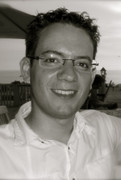
Christian Geist (Germany)
MSc Student 2008-2010
Studying at the ILLC has clearly been a privilege because of the excellent courses offered and the cutting-edge research that is happening there. But even more has it been a privilege to be able to work with the exceptional people at this institute. Both students and professors are extremely approachable and create an unrivaled, collaborative atmosphere, in which studying is a great pleasure. I remember many enjoyable hours of discussing ideas with fellow students, PhDs and professors, which brought together different perspectives, backgrounds and fields and thereby led to truly interdisciplinary results that would have been impossible in a different setting. On top of this amazing atmosphere, you get great freedom in developing and choosing your own line of research while at the same time having access to many forms of guidance, for instance from your student and academic mentors.
Of course, since people at the ILLC are tremendously passionate about logic, you are also expected to invest quite a significant amount of your time and energy into this program. But if you do, be prepared for the most rewarding experience!
So, if you share this passion for logic, I can only recommend you become a part of this great community at the ILLC in Amsterdam! -
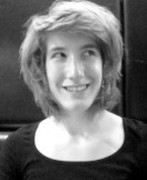
Annemieke Reijngoud (The Netherlands)
MSc Student 2009-2011
The words that best describe my experience at the ILLC.
Interdisciplinary. I started the master program as a would-be linguist, I graduated in computational social choice, and in between I took courses in modal logic, game theory and philosophy.
Research. At the ILLC the love for logic is everywhere. Researchers are extremely approachable, and they talk with great enthusiasm about their research. The master program also offers 6-week deep-dive courses in particular research topics. For example, I studied and discussed formal principles of welfare together with 5 other students and a supervising postdoc. In the master thesis I presented my first piece of 'real' science; a valuable, frustrating and rewarding experience at the same time.
Great people. I had a lot of fun with the other students while working together on assignments, but also after class. I'll definitely remember the drinks we had after our Thursday evening class, the endless discussions about everything in the student room, and the typical dutch Sinterklaas parties we celebrated together.
If you love logic too and if you are not afraid of intellectual challenges, please apply! I have not regretted it.
-
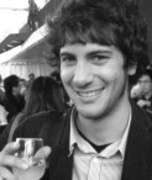
Fabio Zanasi (Italy)
MSc Student 2010-2012
Since my days as a bachelor student I have been wanting to become a "logician". To this aim, I thought that I should have worked hard, but also I should have been lucky enough to find myself in "the right place". The ILLC has proven to really be such a place for me. In particular, the master program presents unique features that made my two-years logic training in Amsterdam an intense and truly satisfactory experience. First, the choice of topics covered in the courses is extremely wide and rich, being appealing for students coming from Computer Science, Mathematics and Philosophy. This is because the master does not offer any course specific to those fields, but flourishes at the intersection of them, featuring each year twenty-thirty courses with different perspectives on logic and its applications. The selection of topics is updated each year: it is not rare to see a course covering the state of art in a particular area, exposing students to the cutting-edge research in logic.
Beyond the courses, I have been truly enriched by my everyday life with the other students. The majority of them are talented foreigners which were attracted by the international reputation of the master. Coming from different (both scientific and cultural) backgrounds, logic students create an atmosphere of interaction and fruitful exchange of ideas, which is also supported by the presence of a common room when most of their activities take place. Professors clearly appreciate the quality of students and collaborations with staff members arise quite naturally.
This synergy often leads to "projects", which are another peculiarity of the programme. Students not only have much freedom in choosing the courses they want, but they can also propose something on their own (a project, indeed), which usually consists in tackling some advanced topic or pursuing some line of research. Projects represented a key step in my education: I had the chance to explore areas of logic which are usually not covered at the master level, presenting them in talks and seminars; I also learned to organize independently my work in a way which has also been fruitful at the PhD level.
These and other aspects contribute to make this program something special, where talented and motivated students are in ideal conditions to develop their own skills. I believe that I could not have received a better education in logic elsewhere and I feel lucky that I have been part of it.
-
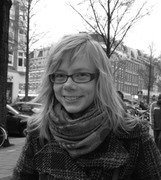
Paula Henk (Estonia)
MSc Student 2010-2012
PhD Candidate 2012-2016I started the MoL-programme at the ILLC with the vague but firm idea that I want to study logic. Obtaining my Bachelor degree in Cognitive Science, I had acquired knowledge in fields as diverse as neurobiology, linguistics, artificial intelligence, and philosophy. My encounter with logic had not gone beyond an introductory course, but I was fascinated by the world of abstract thought and wanted to learn more about it. Fortunately, one does not need more than that in order to become a MoL-student.
The courses being taught at the ILLC offer more than enough possibilities to explore different areas of logic. If you're interested in a subject not covered in any of the classes, you can always arrange for an individual project, or attend a course at another university in the Netherlands. You have the freedom to discover what interests you the most, and you have the freedom to pursue it. There are probably not many Master's programmes out there where someone with a degree in Cognitive Science can shift focus to mathematical logic. Within the MoL-programme, however, reorientations such as this are no exceptions.
Being a student at the ILLC means so much more than just learning a bunch of theorems from textbooks --- in the ILLC, logic is alive. This means, first, that several courses are being taught by researchers actively involved in the subject themselves. Second, and more importantly, when you're with MoL-students, there is always the potential of logic becoming the subject of discussion --- while having lunch at the institute, buying groceries at Albert Heijn, or having drinks at a local bar. I think I can safely say that I have learned at least as much logic during conversations like this than I have while engaging in more traditional forms of learning, such as attending lectures and solving homework problems.
During my time as a Master student, the MoL-room at the ILLC became something like a second home for me. This was of course due to the sheer amount of time I spent there, working. But a home is nothing without a family, and this is indeed how I started to feel about some of my fellow students. Already the shared passion for logic is a favorable precondition for mutual understanding, rendering the differences in academical or cultural background insignificant. Add to this the intense experience of doing the MoL-programme together, and you have the perfect ingredients for friendships more special than you ever imagined possible.
-

Aybüke Özgün (Turkey)
MSc Student 2011-2013
joint PhD Candidate 2013-2017I learned about the MSc in Logic from my bachelor-thesis supervisor who told me that if I wanted to have the opportunity to study a variety of fields in logic and learn how to do proper research in those subjects, the ILLC would be the best place to go. My experiences at the ILLC have confirmed his this. The variety of courses offered allows you to discover and explore different areas - mathematics, philosophy, linguistics, computer science - of logic and cutting edge research at the intersection of those. As a mathematics undergrad, I had the chance to take many philosophy and linguistics courses which provided the direction for my future studies. The courses and individual projects not only provide the opportunity to cover the basics of a topic, but almost "oblige" you to follow and even contribute to the most current research in the respective area. If you are planning to come to the ILLC, you should be prepared for very hard but rewarding work. You will learn more than you thought you would and the satisfaction from having understood a difficult topic will make you forget about the sleepless nights spent with like-minded friends from literally all around the world doing homework and projects in the MoL-room. The ILLC provides many opportunities to connect with logicians outside of the institute via the guest lectures, weekly/biweekly seminars and colloquia. I must add that, as I witnessed repeatedly during my stay in Amsterdam from interactions with logicians from outside the ILLC, the MSc-programme is already very well-known and respected all over the world in the logic community.
Another point that strikes me about the ILLC is its international environment. In my year, for example, there were around 40 master students from 23 different countries. The internationality of the institute gives you the opportunity to meet extremely motivated, smart and successful future logicians from all around the world and to get to know different cultures and the chance to broaden your intellectual and cultural perspective.
All in all, I am quite sure that going to Amsterdam to attend the MSc-programme at the ILLC was the best possible start of my academic career in logic. If you are a logic enthusiast and search for a demanding intellectual journey, the ILLC is the right place for you!
-
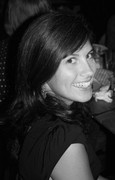
Femke Bekius (The Netherlands)
MSc Student 2011-2013
Participating in the MSc of Logic is a challenging and rewarding experience.
On the one hand, the many different courses and projects offered are intellectually challenging. You will design your own course of studies which allows you to develop your own ideas. This way you have the possibility to do what you are interested in, but at the same time are forced to think about why you chose a certain direction which is important for your future as well.
The interdisciplinary nature of the MSc enables you not only to learn about the different fields related to logic, i.e. mathematics, computer science, philosophy and linguistics, but also challenges you to combine theories and insights to see the connections between them. In addition, it teaches you to look across the boundaries of research fields and explore the common ground in different directions.On the other hand, it is a challenge working together with people from all over the world with different backgrounds. However, it is a privilege to be part of an environment where everyone is motivated, helpful and inspired to get the most out of it. Through working together with the other students I learned a lot, experienced different ways of thinking and working, got interested in topics I did not know anything about before, but maybe most important, I made new friends.
The MSc of Logic is a great experience if you like logic (in any of its many forms) and challenging yourself.
-
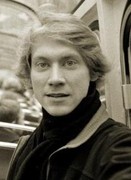
Sebastian Speitel (Germany)
MSc Student 2011-2013
Had I to describe the Master of Logic in a single word, I would probably choose intense. The level of abstraction, the scope of the program, the motivation of faculty and fellow students, not to mention the number of sleepless nights spent brooding over problems, whiteboards filled and heated discussions had, they all far exceeded anything I had expected before starting the program.
Coming from a philosophy background my goal in completing the MoL was to get a bit clearer on what it actually is that we do when we do logic and to get acquainted with the formal aspects and methods so prominently used in this particular (and peculiar) discipline. I got way more than I bargained for; I still do not know (maybe less than ever) what it actually is that we are doing when we are doing logic, but that it is a lot is certain. I have gained an enormous appreciation for the breadth and range of applicability of the subject and am amazed by its depth, clarity and rigor. It is guaranteed that you will do more logic and learn more about it than you could have ever imagined prior to going into this program.
For all the fascination pertaining to the subject itself, the undoubtedly greatest part of the MoL are the people that make it up. The faculty is not only incredibly knowledgeable and at the forefront of research in their respective area, but also very approachable, helpful, enthusiastic and supportive in a way that will see you interact with them a whole lot, developing your interests and diving deeper into questions that concern you. There is always an open door, a whiteboard to be filled with ideas and a coffee to be had over a discussion of a proof, problem or position.
The student body comprising the MoL consists of amazing people from a variety of different backgrounds and fields of study that will make the stay at the ILLC an unforgettable experience. Everyone is extremely motivated and driven which makes for a challenging, motivating and stimulating environment in which collaborative work, discussion over and beyond the confines of the institute into the pubs or cafes and the sharing of insights and ideas happens automatically.
Moreover, once you get used to the (near permanent) rain you will realize that Amsterdam is a fantastic place to spend (at least) two logic-loaden years.
-
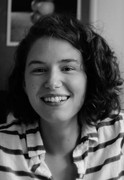
Nadine Theiler (Germany)
MSc Student 2012-2014
PhD Candidate 2015-2019How strange to think that I came across the Master of Logic almost by mere accident, leafing through the frontmatter of a textbook on formal semantics. The author's name, I discovered back then, was a collective pseudonym---and four out of the five people it stood for were from Amsterdam! From there, it didn't take long to find out about the ILLC and the fact that there was an entire master programme dedicated to the study of logic in all its forms. I'm glad for that day, and wouldn't want to miss out on the experiences that followed it.
What impressed me most about the MoL is how naturally we, the students, were welcomed into the academic community at the ILLC, and what a lively, active community that is. You can feel that all around you research is thriving. There are more seminars, colloquia and guest lectures than you could ever attend. The latest research also carries over into your curriculum: lecturers will often introduce their recent work in class, and you can arrange individual research projects with staff members. I found it immensely exciting and encouraging to be so close to this vibrant academic life.
You can't talk about the MoL without mentioning its diversity---it's at the heart of what it's all about, and in more than one respect. There's a wide variety of logic-related topics on offer. Plenty of collaboration is happening across disciplines. And, last but not least, students come from different academic backgrounds and from all over the world. You'll be working in an interdisciplinary, international crowd of people, some of whom have come from far just to attend this programme. I found the enthusiasm of my fellow students pretty infectious. They were, across the board, genuinely curious and highly motivated. But they were also---and this is every bit as important---great fun to spend time with.
-
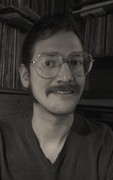
Kees van Berkel (The Netherlands)
MSc Student 2012-2014
If I had to choose five words that would best pertain to the Master of Logic (MoL) Program at the ILLC, I would choose 'interdisciplinary', 'freedom', 'appreciation', 'collaboration' and 'obsession' (Yes(!) they are all positive words).
Because of the interdisciplinary nature of logic itself, the range of courses offered at the MoL is highly diverse. There are very few mandatory courses, which allows you to follow your own curiosity. Moreover, at the MoL you are highly motivated to `discover' and 'try'. This is facilitated by the amount of freedom that you enjoy as a MoL student during the program. For example, you are encouraged to both propose and participate in several (individual) research projects. My experience is that people at the ILLC are always happy to assist, advise and encourage you in your scientific quest.
The interdisciplinary character of logic makes that logicians, coming from different fields of science, need to and most of all want to collaborate. For this reason, I believe people at the ILLC are always genuinely interested in the work of their fellow researchers. This creates an atmosphere at the ILLC of 'anybody might have the answer'. This mutual interest is not restricted to researchers and teachers only: as a master student you feel that your participation and contribution is really appreciated. Subsequently, I believe that this close collaboration causes close contact between researchers, lecturers, PhD students and master students. Furthermore, the interdisciplinary character of the program and the problem solving attitude at the ILLC allow you to bring your own creativity into scientific research. I experienced the above as highly motivating as well as very inspiring.
In joining the MoL program you get to hang out with people from all over the world who decide to live in Amsterdam for one reason: logic. The obsession for logic among MoL students is very stimulating and causes a lot of (scientific) fun! (I will always cherish the logical jokes, inspiring conversations and jam sessions with my fellow MoL students.) Furthermore, my experience is that MoL students are always willingly to help each other out: e.g. mathematicians tutoring philosophers (like me) in understanding mathematical problems and vice versa. I believe this is a very unique quality of the MoL and it made me adept into the world of logic much faster.
In short, the ILLC is a very inspiring place for a young scientist.
-
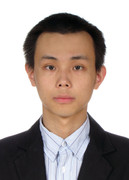
Ciyang Qing (China)
MSc Student 2012-2014
International, interdisciplinary, and individual, the MoL programme is exactly as advertised.
I first heard about the ILLC and the MoL programme in my junior year. A visiting professor taught a great course on Goedel's incompleteness theorems and I was deeply impressed by the beauty and elegance of logic. In the meantime, I was fascinated by how people use natural language to convey abstract ideas such as mathematical concepts. So at the end of the semester I talked to the professor about my interests in logic and language. He told me, "ILLC would be a good place to pursue these interests." And it turned out that he was absolutely right!
When the programme started, I was surprised to find out that there were more international students than local students. My fellow students are from all over the world (as close as Belgium or Germany and as far as Brazil or Argentina). And it quickly became clear that although we had very diverse backgrounds and interests, we shared the same enthusiasm for logic. The programme provided us a variety of courses in areas related to logic and we enjoyed great flexibility in designing our own curricula that best suit our goals and interests. Besides the courses, there were a great many seminars and talks. I really enjoyed them because I could hear about people's latest research and also feel free to ask really basic questions when the topic was unfamiliar.
Besides the excellent courses and seminars that allowed me to explore a range of areas and topics, my favorite component of the MoL programme is the individual research projects. I had great advisers who made the projects rewarding experiences. From the projects, I learned what it is like to conduct original research, from doing critical literature review to presentation at conferences. These experiences greatly helped me prepare for the master thesis and application for PhD positions.
Last but not least, my academic mentor, the student mentors, the programme manager, and other academic staff were all very kind and helped me with various aspects of study and life.
I feel really lucky that I heard about the MoL programme and got to study here, and I think it is great for anyone interested in logic-related research areas.
-
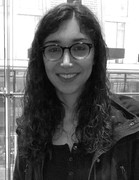
Francesca Zaffora Blando (Italy)
MSc Student 2012-2014
The ILLC is a most congenial habitat for the Aspiring Logician. There, this curious animal is free to nose out more breeds of logic than it could ever have hoped for and join a close-knit pack of like-minded logic enthusiasts.
So, if you are passionate about logic (and you are prepared to work hard), you will thrive in Amsterdam. As a member of the MoL community, you will be treated as a researcher as well as a student from the very beginning, and, with the help of world-class instructors and talented fellow students, you will be able to delve into the topics that excite you the most.
In keeping with the long-standing predilection for interdisciplinarity of the Dutch school of logic, the MoL programme lies at the intersection of mathematics, philosophy, computer science, linguistics and cognitive science. This means that you will also have countless opportunities to step out of your comfort zone: philosophy students may for instance discover a passion for the incomputable, and mathematics majors an interest in belief dynamics or neural computation.
At the ILLC, you will soon discover that logic is all around you. Not only in the classroom, but also by way of regular research talks and colloquia, workshops, the Cool Logic seminars or, simply, casual chats in the MoL-room. And after two years in Amsterdam, you will likely realise that your research interests - and, more generally, your academic path as a whole - have been decisively shaped by your participation in the MoL programme, and that studying logic at the ILLC was possibly the most intellectually rewarding experience in your life so far.
-
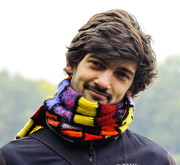
Pietro Pasotti (Italy)
MSc Student 2013-2015
With a background in philosophy, I cannot say getting started with the MSc Logic has been an easy enterprise. I can't remember studying harder (for so long) in my whole life. It has been quite a long step for me, a step that has taken me from philosophy to artificial intelligence, which is what I'm currently working on.
The first thing that comes to mind when thinking back to studying at the ILLC is this: a lot of good quality hard work and headbanging on the whiteboards. The second thing is a reason why all that wasn't so bad after all: I was not alone in my efforts. The atmosphere at the ILLC is friendly, relaxed and mostly informal. This helps foster good relationships across the layers of the academic community, from master students to PhDs and professors (something which is, in my experience, pretty much unique). And crushing problems is easier when there's more than one head banging on them.
All in all, the choice of doing the MSc in Logic is one that I would make over and over again.
-
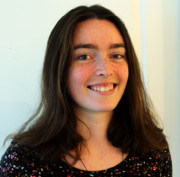
Yfke Dulek (The Netherlands)
MSc Student 2013-2015
PhD Candidate since 2016Before joining the ILLC, whenever I heard the term "interdisciplinary", I tended to think that meant that all courses are introductory and only just scratch the surface of their respective topics. In the Master of Logic, this is definitely not the case: even though there is an enormous variety of courses to choose from and research topics to discover, an academic mentor helps you to set up an individual curriculum that allows you to explore new things, but also delve deeper into your core track. This challenges you to push your academic self in more than one way: not only will you be able to work with the latest and greatest results in a specific topic that you completely understand, you also learn to apply these results to different areas of study, and discover new connections.
The students all have vastly different backgrounds (both culturally and academically) but they all speak the same "language", namely logic, which helps to navigate the different subjects and allows for effective communication between them. Master of Logic students are, without exception, hard-working and keen to collaborate, making it very easy to learn about one another's areas of expertise.
Through small classes, seminars and the common room, the faculty members are very approachable. They are always happy to talk about their research interests, and will often even allow you to take a peek into the kitchen by supervising you in an individual research project. Some students know from the start of the programme that a life in academia is for them, but if you are unsure like I was, the Master of Logic provides excellent opportunities to experience academic life, observe research practices of all kinds of different fields, and learn from the very best.
